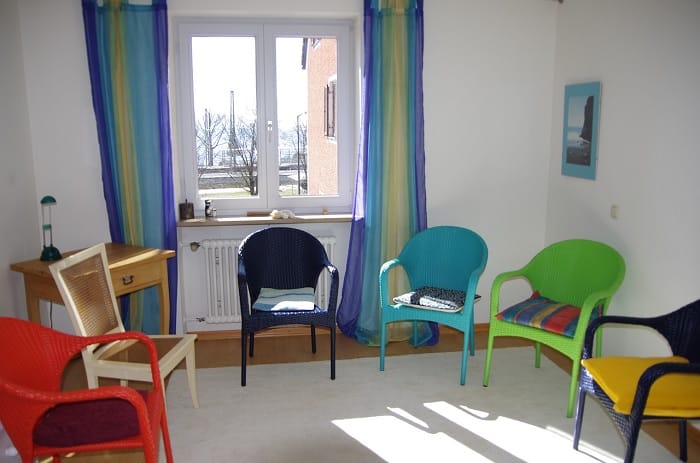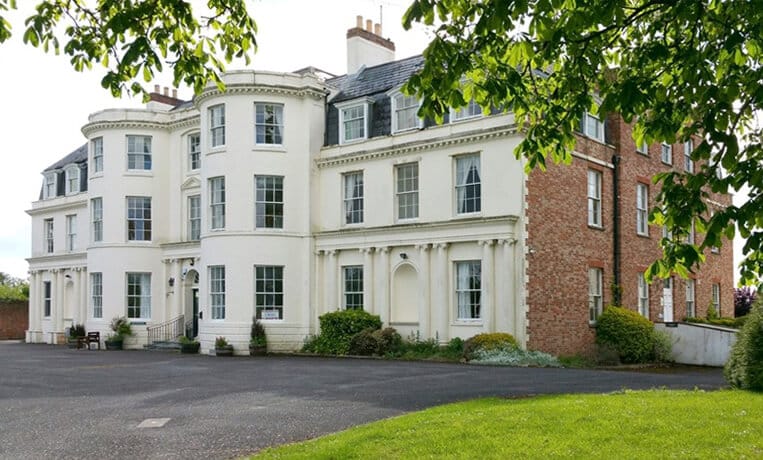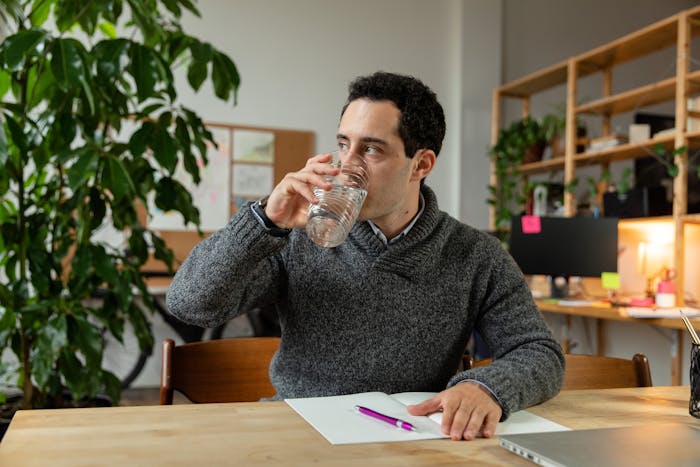Rehabs in County Durham are ready to help you recover from addiction.
Sadly, in 2020, there were 88 people who died as a result of drug use in County Durham.[1]
With the right treatment, recovery is always possible.
Get alcohol and drug rehab for various addictions such as binge drinking, alcohol addiction and other alcohol abuse problems, substance addictions such as benzodiazepine addiction, Buprenorphine addiction, cannabis use disorder, crack cocaine addiction, ketamine addiction, opioid use disorder, heroin addiction, cocaine dependence or cocaine addiction, any physical dependence and even behavioural addictions such as gambling addiction, sex addiction, shopping addiction and eating disorders.
Get the help you need from a drug and alcohol rehab in County Durham by calling our team today on 0800 140 4690

Many families struggle with their loved one who has an alcohol or drug addiction as they might not accept that they have a problem, or might not want to go to a drug and alcohol rehab in County Durham.
An intervention is where you and supportive family or friends approach your loved one and express your concerns.
After this, you can discuss treatment options like rehab, to see how open they are to change.

To stay at an alcohol and drug rehab in County Durham will vary in price according to which clinic you go to, the level of luxury, what addiction treatment programmes are offered and how long you stay.
However, as a general guide, in the UK on average, it costs around £14,000 for a 4 week stay.
This is an average meaning that some drug & alcohol rehab clinics might charge £1000 for a week, whereas another might cost £10,000.
It’s worth doing your research to find out what alcohol and drug rehab clinics in County Durham offer and to do a price comparison.
Rehab 4 Addiction can support you in making this comparison.

In order to pay for rehab in County Durham, some people opt to go through their health insurance.
Many policies cover the cost of alcohol and drug rehab.
If your document doesn’t specifically mention addiction, it’s worth calling the provider and asking if addiction is covered under mental health treatment.
It’s important to bear in mind that if you fund a rehab stay through your private health insurance, your premium will increase.
If you opt to go to alcohol or drug rehab through employee health insurance offered through your place of work, then it’s likely that you’ll be obligated to make this known to your employer.

People who come from low-income backgrounds are able to access NHS funding to enter a private clinic in County Durham.
However, in order to be granted funding for private rehab you need to meet certain criteria.
Sadly, this is why many applicants aren’t able to get NHS funding; because of the number of applications far outweighs the money available.

There are three main types of addiction treatment programmes when people go to a residential rehab facility.
There are those that include just a supervised alcohol or drug detox, those that cover detoxification and therapies, and those that just cover therapies.
Specific treatment methods and therapy sessions might include:
The substance you’re addicted to and the severity of your addiction will influence what treatments and therapy sessions are needed, the specific composition of your treatment plan as well as how long you stay at rehab.
A drug or alcohol detoxification, where a person is safely weaned off a physically addictive substance, typically lasts around 7-10 days but can be faster.
Where addiction sufferers undergo supervised detoxifications and therapies, their stay at a residential rehab facility usually lasts for 28 days.

There are two types of drug and alcohol recovery services for addiction: private clinics or NHS-funded addiction support services.
Private rehab clinics are where people go to stay as a resident for a certain period of time.
They’ll be given a tailored recovery programme designed to suit their specific needs during the addiction treatment process.
There are clinical staff, psychotherapists, counsellors, holistic therapists, and drug and alcohol workers running the various activities.
Private rehab clinics offer a fully comprehensive treatment plan to ensure you become sober in as safe an environment as possible.
You’ll have a private or shared bedroom and nutritious meals every day.
Government-funded addiction recovery services tend to be run in the centre of local towns and cities.
These rehabilitation programmes are open to all members of the public living with addiction.
There are various activities run every week which people are invited to attend.
Attendees do not stay at the clinic during this process, instead returning home every day.
Drug and alcohol workers will be on-hand offer direct support.
There are plenty of free alternatives to rehab.
Non-residential drug and alcohol recovery services offered by the NHS and addiction charities [2] throughout County Durham include:
Address: The Acley Centre, Carers Way Off Burn Way, Newton Aycliffe, DL5 4PE
Telephone: 01325 529 520
Website: https://www.tewv.nhs.uk/services/camhs-community-south-durham/
Address: 3 Waddington St, Durham, DH1 4BG
Telephone: 0300 304 5527
Website: https://www.durhammentalwellbeingalliance.org/
Telephone: 03000 266 666
Address: Centre for Change, Whinney Hill, Durham, DH1 3BQ
Telephone: 03000 266 666
Website: https://humankindcharity.org.uk/
Address: 2-34 William St, Stockton-on-Tees, TS18 1DN
Telephone: 01642 673 888
Other organisations that can offer you help include NHS Foundation Trust, Turning Point, We Are With You, National Association for Children of Alcoholics, Change Grow Live and Alateen.
Both private rehabs and free services for addiction are advised by the American Society of Addiction Medicine and the National Institute for Health and Care Excellence so you are in excellent safe hands with person-centred care.
You might also be offered access to a sober living house once you leave formal drug and alcohol rehabilitation facilities in order to help you maintain your sobriety in the long-term.

When you enter a drug and alcohol rehab clinic in County Durham to stay for a period of time, you’ll experience inpatient recovery services.
Inpatient treatment is generally considered more effective than service at an outpatient rehab centre due to the fact that the entire process takes place in a fully monitored and supported recovery environment.
Upon leaving your chosen inpatient rehab clinic in County Durham, you’d then become an outpatient.
Where this happens, you’d be living at home but return for some aftercare support where appropriate.
Government-funded services only provide outpatient rehab services.
When you attend drug and alcohol rehab through an outpatient rehab programme, you will continue to live at home but go to your nearest drug & alcohol rehab centre for treatment such as counselling or a 12-step group.

Lots of people begin drinking alcohol in a casual or social way.
However, there are certain factors that can turn this into an addiction.
When this happens, a physical dependency can develop.
A dependency is dangerous because when a person stops drinking, their body will then begin to shut down.
This is because the organs have come to rely on alcohol in order to work “normally”.
Severe withdrawal symptoms from alcohol that rehab can help treat include:
To make sure the risk of seizures is prevented as much as possible a rehab medical team will typically prescribe patients with Chlordiazepoxide – brand name Librium.
When you undergo detox, as this has been shown to offer extra protection against the risk of seizures and help to ensure the patient’s physical health.
A medically-assisted detox at rehab is needed in order to help minimise or prevent the worst effects of alcohol withdrawal, including encephalopathy (Wernicke encephalopathy) and delirium tremens.

If you’re physically dependent on alcohol, then you’ll need a medical detox in order to come off the drink safely.
A rehab addiction physician/addiction specialist at a private clinic in County Durham can prescribe you Librium in order to ease withdrawal symptoms and reduce health risks.
Medication is given in a tapered way and lasts up to 10 days to help individuals manage withdrawal symptoms.
At the end of your detox at rehab, it’s highly recommended that you remain for another 3 weeks in order to begin the healing of the mind.

When you enter rehab, you’ll have a psychiatric assessment by a psychiatrist in order to determine whether you need any psychiatric treatment.
Every resident has this.
This is so that the staff fully understand you and your addiction, in order to make sure you receive the treatments you need.
This assessment at rehab might reveal that you have a mental health condition.
Mental health conditions and addiction are linked. They can result from the following:
Residents at rehab who are given a dual diagnosis will thereafter receive support for both conditions.
When this happens, there is a much higher chance of the person becoming and remaining sober.
You can also find general support for mental health problems at Rethink Mental Illness, Papyrus, Young Minds, Samaritans and Mind UK.

People who choose to get the help of rehab facilities will eventually return home when their initial treatment is complete.
Returning home can be the source of worry for some as this is the time when they could be faced with old triggers.
While at rehab, you’ll develop an aftercare plan which focuses on supporting you to remain sober and may offer you the option to return post-rehab for further sessions.
Relapse prevention will be addressed.
With a member of staff, you’ll start to clearly identify the people, places, and things that make you more likely to use alcohol and drugs.
You’ll discuss how to avoid and manage these triggers at rehab.
Together you’ll create a list of actions you can turn to when you’re faced with drug or alcohol cravings.
Along with this, you’ll also receive outpatient services for 12 months after your stay to help sustain the positive effects of your addiction treatment process as effectively as possible.

There are various types of support you can access once you leave your drug and alcohol rehab provider.
These will be useful for your personal and social recovery.
Some of these services and organisations also offer support to your family members.
Your rehab will help you arrange aftercare, and many also offer check ins to track your progress.

To learn about County Durham drug and alcohol rehab providers and access the best treatment options for you, reach out to us today on 0800 140 4690.
We are here to help you take those vital first steps on the road to addiction recovery and start the admissions process for a suitable recovery centre.
Our rehab referral service is entirely free and without judgement.
No matter how severe your addiction is, help is always just a call away.
All of the drug and alcohol rehab centres we recommend are regulated by the Care Quality Commission (England and Wales) or the Care Inspectorate (Scotland).
We also offer our rehab services across a variety of locations across County Durham, including in Darlington, Hartlepool, Stockton-on-Tees, Durham, Billingham, Peterlee, Newton Aycliffe, Bishop Auckland, Consett, Chester le Street, Seaham, Stanley, Spennymoor, Crook, Shildon, Ferryhill and many more.
This article was written by Boris Mackey. You can connect with Boris online at LinkedIn or X.com.
 Addiction is often largely misunderstood, with many incorrectly labelling it as a lack of willpower, a moral failing or something that happens after a series of bad choices. When, actually, addiction is much more complex. It can be shaped by a number of things, such as trauma, mental health, the environment you grew up in […] .... Read More
Addiction is often largely misunderstood, with many incorrectly labelling it as a lack of willpower, a moral failing or something that happens after a series of bad choices. When, actually, addiction is much more complex. It can be shaped by a number of things, such as trauma, mental health, the environment you grew up in […] .... Read More
 After completing or trying your best for Dry January, it can be tempting to count the days left until you can give it all up and return to drinking. But there are multiple benefits to maintaining your abstinence into February and longer. During Dry January, your liver begins to repair itself, say if you were […] .... Read More
After completing or trying your best for Dry January, it can be tempting to count the days left until you can give it all up and return to drinking. But there are multiple benefits to maintaining your abstinence into February and longer. During Dry January, your liver begins to repair itself, say if you were […] .... Read More